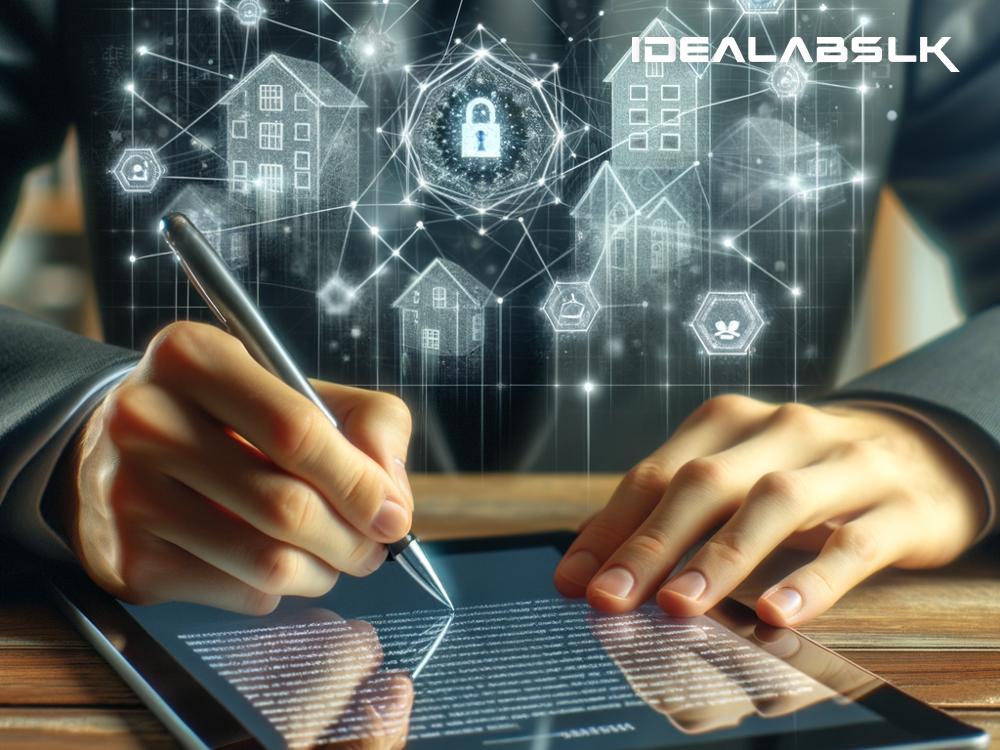Blockchain for Simplifying Real Estate Transactions
The real estate market, with all its potential, is notoriously complicated and often riddled with numerous stages of verification, lengthy processes, and numerous middlemen. From buying a new home to investing in a piece of land, the steps involved can often be daunting. However, technology, specifically blockchain, is paving the way for a significant transformation. This blog post will explore how blockchain technology can reduce the complexity of real estate transactions.
First things first, let's break down what blockchain is. Imagine it as a digital ledger that securely records transactions across multiple computers. This ledger is open and accessible to anyone within the blockchain, making the recorded transactions tamper-evident and transparent. Originally developed for the digital currency, Bitcoin, the tech community is now finding other potential uses for the technology, including real estate.
How Does Blockchain Simplify Real Estate Transactions?
Decentralization
One of the key features of blockchain is its decentralized nature. Unlike traditional real estate transactions, which depend heavily on intermediaries such as brokers, lawyers, and banks, blockchain allows for direct peer-to-peer interactions. This means that buyers and sellers can directly connect without needing a middleman, reducing costs and potentially speeding up transactions.
Transparency and Security
Blockchain's transparency means that every transaction is recorded and visible to anyone within the network, making the process transparent and reducing the chance of fraud. At the same time, the technology is incredibly secure. Once a transaction is recorded in a block and added to the chain, it is nearly impossible to alter. This level of security and transparency is particularly appealing in real estate transactions, where large amounts of money and sensitive information are involved.
Smart Contracts
Perhaps one of the most revolutionary aspects of blockchain in real estate is the concept of smart contracts. These are self-executing contracts with the terms of the agreement directly written into code. Once predefined conditions are met, the contract automatically executes. For example, a smart contract could automatically transfer property ownership once payment is confirmed without any manual intervention. This not only speeds up transactions but also minimizes the risk of default or fraud.
Tokenization of Assets
Blockchain facilitates the tokenization of real estate assets, which means converting the value of real estate into a digital token. This process enables investors to buy and sell fractions of properties, making real estate investment more accessible. It also allows for easier and faster transactions, as these tokens can be traded like stocks on a digital platform.
Streamlining Property Management
Beyond buying and selling property, blockchain can streamline property management. Lease agreements, for instance, can be managed through smart contracts. Moreover, blockchain can help in managing the records of a property, including title records, seamlessly and securely. This aspect is particularly valuable in countries where property ownership records are poorly managed or prone to disputes.
Reducing Costs
Finally, by removing the need for middlemen and making the transaction process more efficient, blockchain can significantly reduce costs associated with real estate transactions. Fees paid to brokers, lawyers, and banks can often add a considerable amount to the cost of buying or selling property. Through blockchain, these expenses can be minimized, making real estate transactions more affordable.
Challenges and Future Outlook
Despite its potential, blockchain in real estate is still in its infancy, and there are challenges to overcome. Regulatory hurdles, the digital divide, and the need for a comprehensive understanding of blockchain technology are among the key barriers. However, as the technology continues to mature and more stakeholders understand its benefits, blockchain could indeed revolutionize the real estate industry.
In conclusion, blockchain technology holds the promise of simplifying real estate transactions by providing a secure, transparent, and efficient platform for buying, selling, and managing property. As the technology evolves and more people become aware of its potential, we can expect to see a significant shift in how real estate transactions are conducted. By reducing complexity, blockchain not only makes real estate transactions easier but also opens up new opportunities for investment and ownership.

